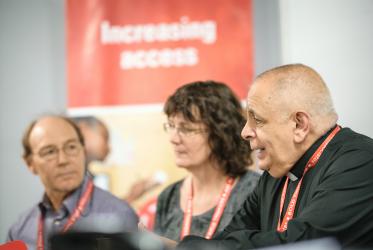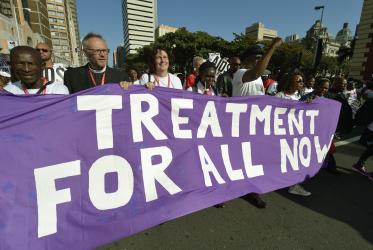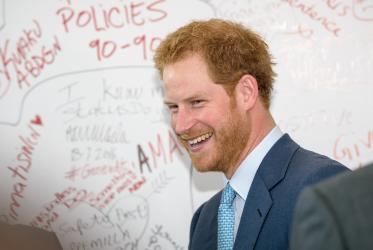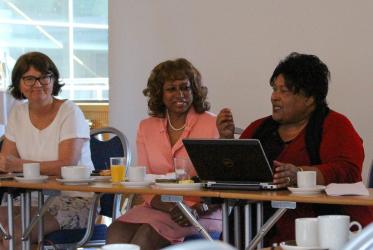Displaying 21 - 40 of 43
AIDS 2016: Coverage of faith response to HIV
22 July 2016
Star power shines light on AIDS epidemic
21 July 2016
Children are being let down over HIV care
17 July 2016
AIDS 2016: “Stigma kills more people than HIV”
17 July 2016
New Executive Committee members elected in Trondheim
28 June 2016
Tveit in South Africa: “ We know. We dare. We can.”
12 June 2016
WCC Executive Committee speaks out on migrant crises
12 June 2015














